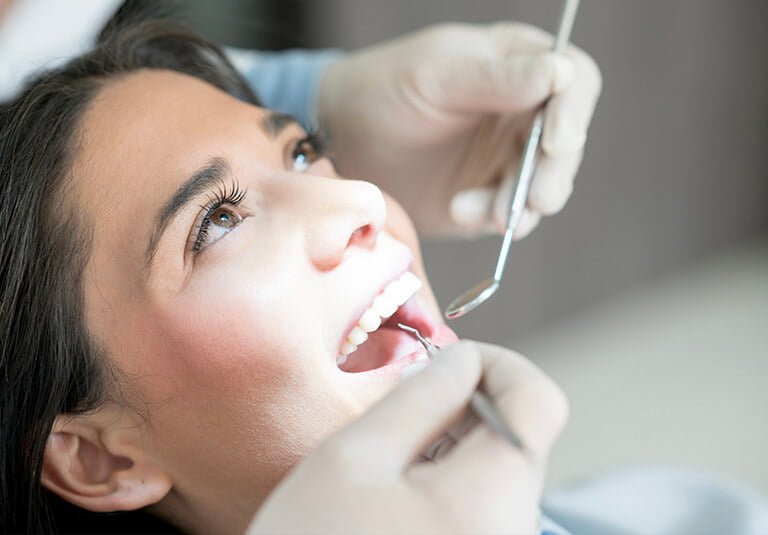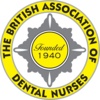Periodontics
Innovative Individualised Treatment For Optimum Gum Health.

Periodontics relates to the speciality within dentistry that studies the structures that support and surround your teeth, though most people link the treatment to gum problems, such as periodontitis.
Leaving gum problems untreated can have serious affects on your general health as well as your mouth health and can eventually lead to tooth loss. Looking after the whole of your mouth is just as important as looking after your teeth, which is where we come in.
Periodontic treatments commonly involve gum disease, bone tissue and root planing (deeper removal of plaque from the gum level).
While most Dental practices require you to be referred for some of these specialist treatments, at Zero:Seven Dental our Specialist Periodontist Dr Ruben Garcia-Sanchez, along with our state of the art tools and technology and expert team, provides them right here, in house.
Whatever the treatment you need, we can help. Our Specialist Periodontist Dr Ruben Garcia-Sanchez will carry out an comprehensive initial consultation to determine the best course of action for you and your dental issue.
You will be offered this follow up appointment at no extra cost to discuss Dr Garcia-Sanchez’ findings and proposed treatment plan. He will ensure you are fully informed about your treatment and any risks and benefits involved. This is your opportunity to ask any questions you may have and make any changes to your treatment plan before going ahead. It is extremely important to us that you are happy and comfortable with your proposed plan, which is why we believe this additional follow up is a vital part of your treatment journey.
All of your treatments will be carried out in a clean and safe environment. With exceptional hygiene as standard. Our friendly, expert team will ensure you are comfortable and confident with your treatment every step of the way.
Treatments may include;
Oral hygiene instructions – This is one of the key aspects surprisingly obviated by a large number of dentists. Good oral hygiene is the pillar around which any good periodontal treatment is based on. This is tailored to each patient needs by analysing brushing technique in detail as well as using different technologies to help us identifying plaque as well as the best way to remove it.
Root surface debridement (deep clean) – This periodontal cleaning helps to remove plaque from ‘pockets’ between the teeth and gums that are one of the main causative factors of gum and bone breakdown which ultimately lead to tooth loss. For less extreme cases this non-surgical periodontal treatment can be enough to relieve discomfort.
Bone grafts – With this very advanced treatment modality, we can repair/regrow the bone damaged by gum disease. Not all cases are suitable for this treatment, but it is certainly one of the biggest advances in periodontal dentistry in the last 20 years and is offered by our expert clinician.
Gum grafts – This modality of treatment is not only used to repair gums affected by gums disease but also, to enhance aesthetics.
Aesthetic gum surgery – This periodontal surgery is required to achieve the most optimal outcomes in those cases with high aesthetic demands.
After undergoing periodontal treatment, it is important to understand what to expect during the recovery process to ensure optimal healing and long-term success. Here are some common aspects to anticipate after periodontal treatment:
It is normal to experience some soreness and sensitivity in the treated areas of your mouth. The gums may feel tender and may even bleed slightly during the first few days following treatment. Over-the-counter pain relievers can help manage any discomfort, but it is best to consult your periodontist for appropriate recommendations.
Swelling is a common response to periodontal treatment. Your gums may appear swollen or puffy for a few days after the procedure. Applying an ice pack to the affected area can help reduce swelling. If the swelling persists or worsens, it is important to notify your periodontist.
Some bleeding during brushing or flossing can be expected after periodontal treatment. However, it should gradually decrease over time. It is crucial to follow your periodontist’s instructions on proper oral hygiene practices to prevent excessive bleeding and promote healing.
Your periodontist will provide specific instructions on how to care for your teeth and gums after treatment. This may include using a special mouthwash, avoiding certain foods, or modifying your brushing and flossing techniques. It is essential to follow these instructions diligently to maintain oral hygiene and aid in the healing process.
Our periodontal clinic will schedule follow-up appointments to monitor your progress and ensure proper healing. These visits are crucial for assessing the success of the treatment, addressing any concerns, and making any necessary adjustments to your post-treatment care plan.
Periodontal treatment is just one step in managing gum disease. It is important to understand that ongoing maintenance and prevention are key to maintaining oral health. Your periodontist may recommend more frequent dental cleanings and check-ups to monitor your gum health and prevent future complications.
The healing process varies from person to person and depends on the severity of your gum disease and the type of treatment received. In general, it may take a few weeks to notice significant improvements. However, it is important to note that complete healing can take several months. Patience and adherence to post-treatment care instructions are essential for successful recovery.
The primary culprit behind gum disease is plaque, a sticky film that forms on teeth. When we consume sugars and starches, they interact with the bacteria in our mouth and form plaque. If plaque is not effectively removed through regular brushing and flossing, it can harden into tartar or dental calculus.
Tartar is a hard, yellowish substance that firmly adheres to teeth. Unlike plaque, it cannot be removed by brushing alone and requires professional dental cleaning. Tartar provides an ideal environment for bacteria to thrive and multiply, leading to gum disease.
The bacteria present in plaque and tartar release toxins that irritate and inflame the gum tissue, resulting in gingivitis. Symptoms of gum disease include red, swollen gums that may bleed easily during oral care routines.
If left untreated, gingivitis can progress to periodontitis. In periodontitis, the infection spreads beneath the gum line, causing the gums to recede and form pockets between the teeth and gums. These pockets deepen over time, allowing more bacteria to accumulate and causing further damage to the supporting structures of the teeth.
Book Consultation


Mono-specialty consultant in Periodontology. Guy’s and St Thomas’ Hospital.
Honorary Senior Clinical Lecturer. King’s College London.
European Federation of Periodontology Certified.
Fellow of the Royal College of Surgeons England.
Fellow of the Faculty of General Dental Practice.
Registered specialist in Periodontology.
PhD in Dental Sciences.
In addition to being the lead Periodontist at Zero Seven, he is also a consultant and clinical supervisor in Periodontics at Guy’s and St Tomas’ Hospital. As part of his PhD he is currently focusing his research on the latest surgical techniques to maximise aesthetics in dental implants.
With his knowledge and experience of gum tissue and bone augmentation, he provides skilled periodontal surgery and aesthetic implant placement.
He is also the founder of The RG Perio Concept. A concept designed to apply the latest innovations in implant and periodontal dentistry to push the boundaries of current therapies and making individualised treatment plans for patients and offering expert training courses in Periodontics & Implants.
Gingivitis typically occurs before periodontitis and is hallmarked by inflammation and redness of the gums. Periodontitis is a disease caused by untreated or worsened gingivitis, where the gum and bone pull away from the teeth and create pockets, which fill with plaque and bacteria and cause infection and destruction of the tissue.
We want our patients to feel comfortable with us, so offer anaesthetic where needed.
If certain Periodontic conditions are left untreated, the result can be loss of teeth and bone (in the jaw). In this case you may need to consider treatments such as dental implants to replace missing teeth.
There’s lots you can do, starting with regular dental check-ups, hygienist appointments and twice-daily flossing and brushing of the teeth and gums.
You may spot signs such as redness and inflammation, pain, or bleeding during your dental routine. It’s also possible you’ll have more serious signs, such as loose teeth or receding gums. To ensure the best treatment outcome, book a check-up as soon as you notice any of these signs and symptoms.
No, because at this stage the disease has progressed too far. However, it can be slowed and prevented from worsening in the future.

From root canals to root end surgery, our Specialist team can help save damaged teeth.
Correct gaps, crowding and bite problems with our Specialist Orthodontic Treatments.






